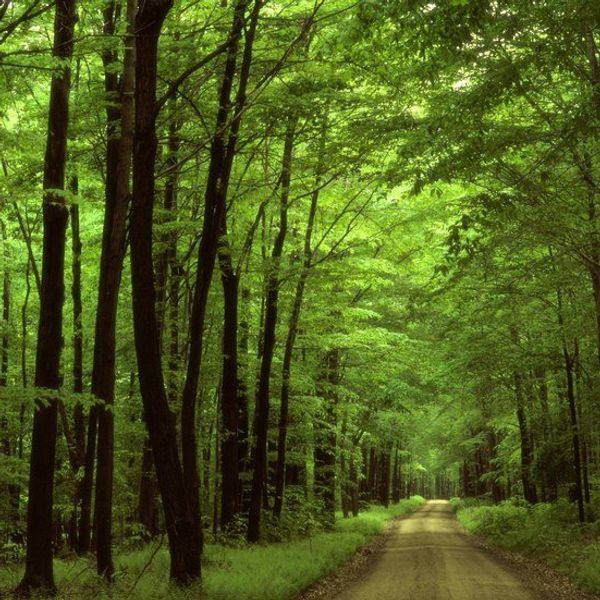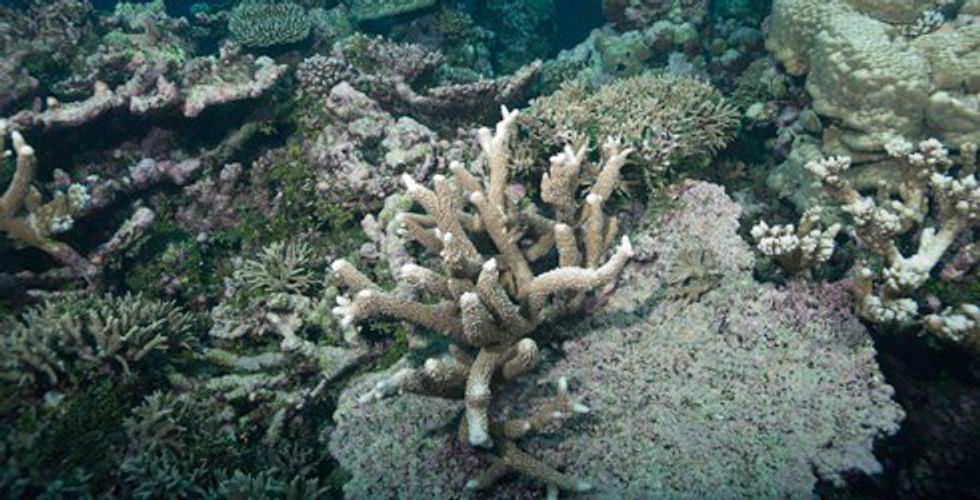The possible extinction of an extremely beautiful and diverse ecosystem is getting attention from scientists and the public eye, but unfortunately not enough. It has been stated numerous times that "Coral Bleaching" is what's killing off the coral - and yet nobody knows the science behind it nor if it's a man made catastrophe. This is where I hope my article on coral bleaching will shed light for some of you who don't know much of what is going on, and please be aware this is simply a crash course.
The term Coral Bleaching, as my biology professor would put it, is when the coral loses dinoflagellates due to hot temperature water. The hot temperature kicks out the dinoflagellate's pigment causing the coral to be "bleached" or "stressed". Now for those of us who have no idea what on earth a dinoflagellate is(don't worry I had to ask my biology professor), it is a colonial animal that is found within the coral munching off plankton. This bond is vital because while the dinoflagellate is sheltered, it gives off food to coral by carrying out photosynthesis, thus making this an endosymbiotic system. Science!
As shown in the picture above, this is how bleached coral looks like. While plenty of articles on the internet are stating there is a possible way to save coral reefs from complete extinction, unfortunately science proves this theory wrong. As I asked my biology professor, whom shall remain nameless for privacy reasons, on his opinion about whether coral reefs can truly be saved, he simply says that once the delicate balance is disrupted the coral dies. Luckily there have been ways to recreate the same ecosystem for marine life by making artificial coral reefs, purposely sinking old warships and letting time run its course. Now the next question is if this epidemic is caused by man or by something we can't control.
While I investigated the internet on scientific websites about coral reefs and climate change, I noticed many of them came to a conclusion that coral bleaching is caused by global warming - which is caused or influenced by us. If there is one thing I learned in all my science classes it's that our everyday gas usage damages the ozone layer in our atmosphere that protect from the sun's rays, and greenhouse gases are well known for trapping heat which is making temperatures drastically increase. Warmer air plus the ocean absorbing that warmth floating about in the atmosphere heats up the water, and that alone can disrupt the oceanic chemistry in the marine life ecosystem. I would love to explain even further in depth how but sorry guys, that's not my forte. Another fact I picked up in my own research, algae disruption can play a huge role in coral survival since they must live in unison in order to keep everything in balance. When it comes to underwater life and the chemistry behind it, any scientist can tell you, there are plenty of things that can throw certain properties off balance. We are the primary blame.
As if it's not enough that we are the ultimate reason why coral reefs are on the verge of extinction, the future for these guys are looking too grim. We haven't cut down our gas consumption and those gases continue to emit themselves into the atmosphere, warming up the atmosphere to the point it's 70 degrees in November. As time passes by temperatures get warmer and warmer, and science proves this theory plenty of times when comparing yearly data - Did you know in a span of 6 years temperatures increased by twelve percent?!That's scary. Plus, there seems to be no political involvement nor movement to save coral reefs, and although there are campaigns raising awareness, it's not enough to make people lower gas consumption.






















